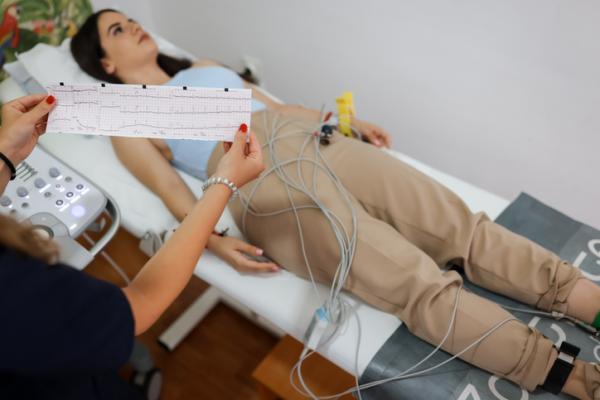
Getty Images
July 7, 2022 — A 5-year, $3.1 million grant from the National Heart, Lung and Blood Institute (NHLBI), part of the National Institutes of Health (NIH), will enable researchers from Atrium Health Wake Forest Baptist’s NCI-designated Comprehensive Cancer Center, Virginia Commonwealth University Massey Cancer Center and Duke Cancer Institute to collaborate in a first-of-its-kind prospective study to look for the earliest signs of heart vessel damage in young, pre-menopausal breast cancer survivors.
Over the past two decades, the rates of women with hormone receptor-positive breast cancer have increased. However, survival rates for women with this type of breast cancer have improved when the treatment involves estrogen depletion to stop cancer cells from growing. Estrogen keeps blood vessels healthy and protects women from heart disease, but the long-term effect of estrogen depletion in young breast cancer survivors puts them at increased risk of heart disease, including heart failure and heart attacks.
“Our patients with hormone-receptor breast cancer are living longer due to aggressive treatment that includes turning off estrogen production that induces early menopause,” said Alexandra Thomas, M.D., Williams Family Chair in breast oncology, professor of hematology and oncology at Wake Forest University School of Medicine and the study’s co-principal investigator. “These patients have decades of life ahead of them and we hope that, by identifying early changes in coronary arteries, we may find ways to lower their risk of irreversible heart disease.”
The study is called “Cardiac Outcomes With Near Complete Estrogen Deprivation” (CROWN) and will include 90 women, age 55 and under, who have been diagnosed with breast cancer. Sixty-five of the study participants will receive standard estrogen-depletion therapy, while 25 participants with hormone receptor-negative breast cancer will serve as a control group for the study.
The CROWN study will be conducted at all three centers, and the researchers also hope to recruit a diverse group of women, especially Black women, who have higher rates of both breast cancer and heart disease.
All study participants will receive sophisticated imaging tests at different intervals to look for small changes in the blood vessels that supply blood to the heart. Those include a cardiac MRI stress test at the beginning of the study, and at one-year and two-year intervals. They also will receive CT imaging of their cardiac arteries at baseline and after two years, along with blood tests to look for biomarkers that correlate with the risk of cardiovascular disease. The participants will be followed for five years.
“The state-of-the-art cardiovascular imaging will allow us to study cardiovascular health in young breast cancer survivors who have decades of survivorship health to protect,” said Jennifer Jordan, Ph.D., assistant professor in the Virginia Commonwealth University Department of Biomedical Engineering and Pauley Heart Center and who also serves as co-principal investigator of the study. “Our collaboration is a great demonstration of team science that integrates the unique expertise of multiple investigators to address a major, unanswered question in cardio-oncology. It has been very exciting to build this team across our institutions, each of which has top-rated cancer centers in addition to cardiovascular imaging centers of excellence.”
“We have made great strides in the treatment of breast cancer,” said Susan Dent, M.D., professor of medicine at Duke University and lead investigator for patients enrolled at the Duke Cancer Institute. “We need a better understanding of the cardiovascular consequences of breast cancer treatments so that we don’t offset the gains we have made in breast cancer survival with early-onset cardiovascular disease.”
For more information: https://www.wakehealth.edu/
Related Content:
Cardiac Monitoring a Higher Priority for High-Risk Breast Cancer Patients
Time-restricted Eating May Lower CVD Risk for Older Breast Cancer Survivors
Heart Failure More Likely for Some Breast Cancer and Lymphoma Survivors


 February 03, 2026
February 03, 2026 









